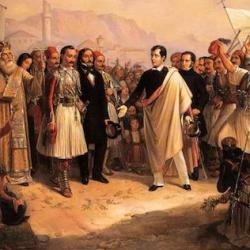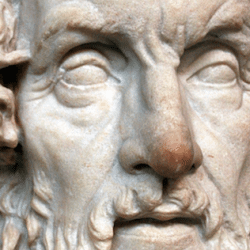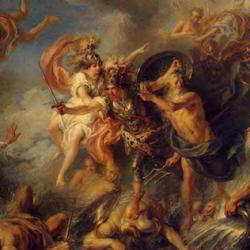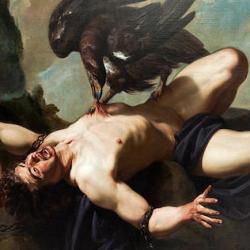Greeks sacrificed to share a meal with the gods, but Jane Harrison (in her classic Prolegomena to the Study of Greek Religion (Cambridge Library Collection – Classics) ) found another sort of sacrifice lurking in the dark corners of Greek religion. According to Harrison, “un-eaten sacrifices are characteristic of angry ghosts demanding placation and of a whole class of underworld divinities in general.”
This is significant in itself. Greek sacrificial procedures included what Harrison calls “rites of riddance” for the chthonic gods. Sacrifice warded off dangerous threats, the underworld gods and ghosts. More importantly, Harrison’s argument is that the Olympian rites were intertwined with and overlaid by the rites of riddance, rites that placated and pacified the dead. Summarizing her conclusions about the festival of Diasia, she writes, “The cult of the Olympian Zeus has overlaid the cult of a being called Meilichios, a being who was figured as a snake, who was a sort of Poutos, but who had also some of the characteristics of the Erinys; he was an avenger of kindred blood, his sacrifice was a holocaust offered by night, his festival a time of ‘hilly gloom’ . . . The cult of Meilichios is unlike that of the Olympian Zeus as described in Homer, and the methods of purification characteristic of him are wholly alien. The name of the festival means ‘the ceremonies of imprecation.’”
Paul said the Gentiles sacrifice to demons. The Greeks might well have agreed.











